We often have patients ask us if they have slipped a disc and this newsletter aims to help clarify what happens when you get pain caused by an intervertebral disc problem.The good news, is that with the correct care and management, disc problems can be resolved. Kind regards
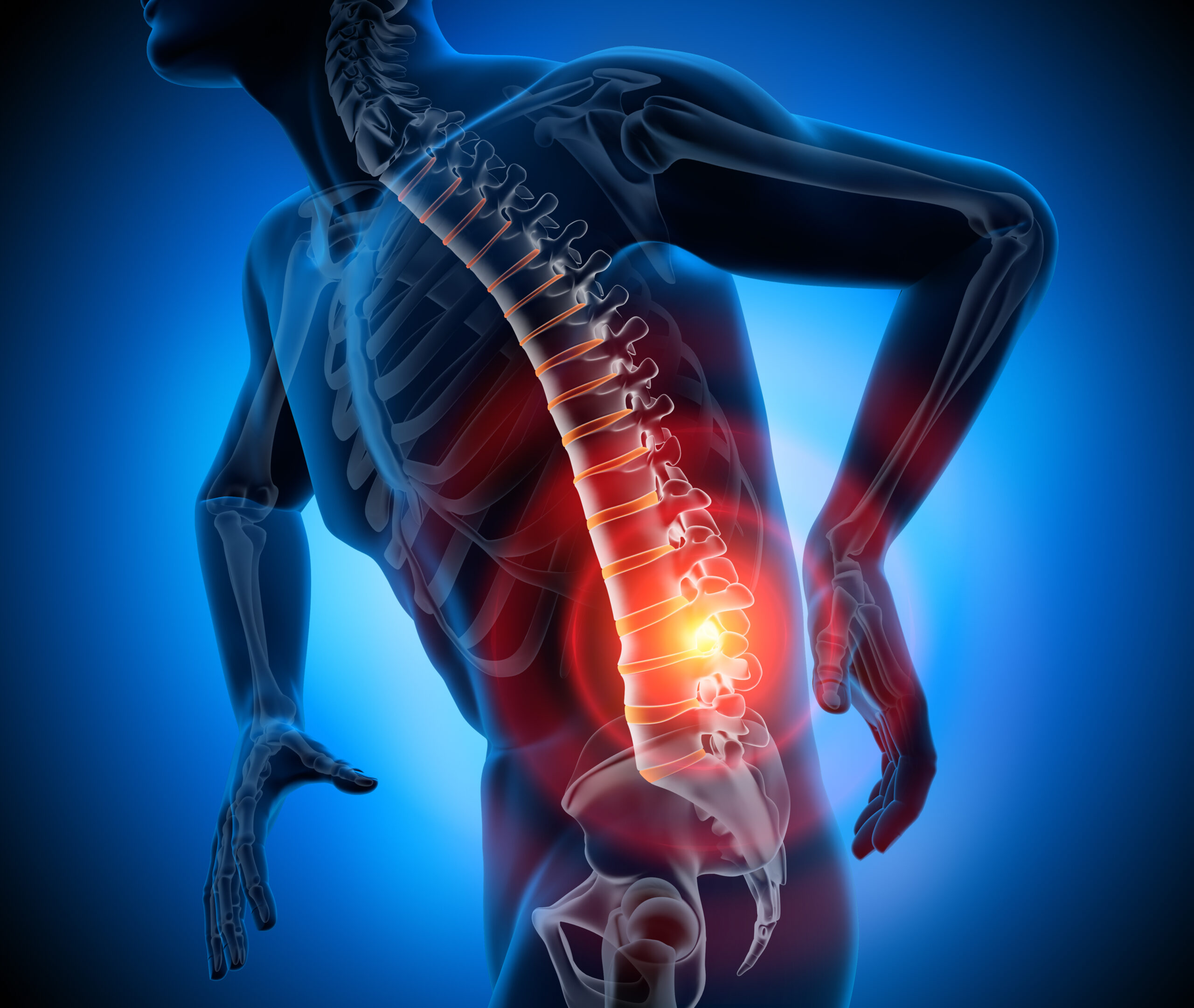
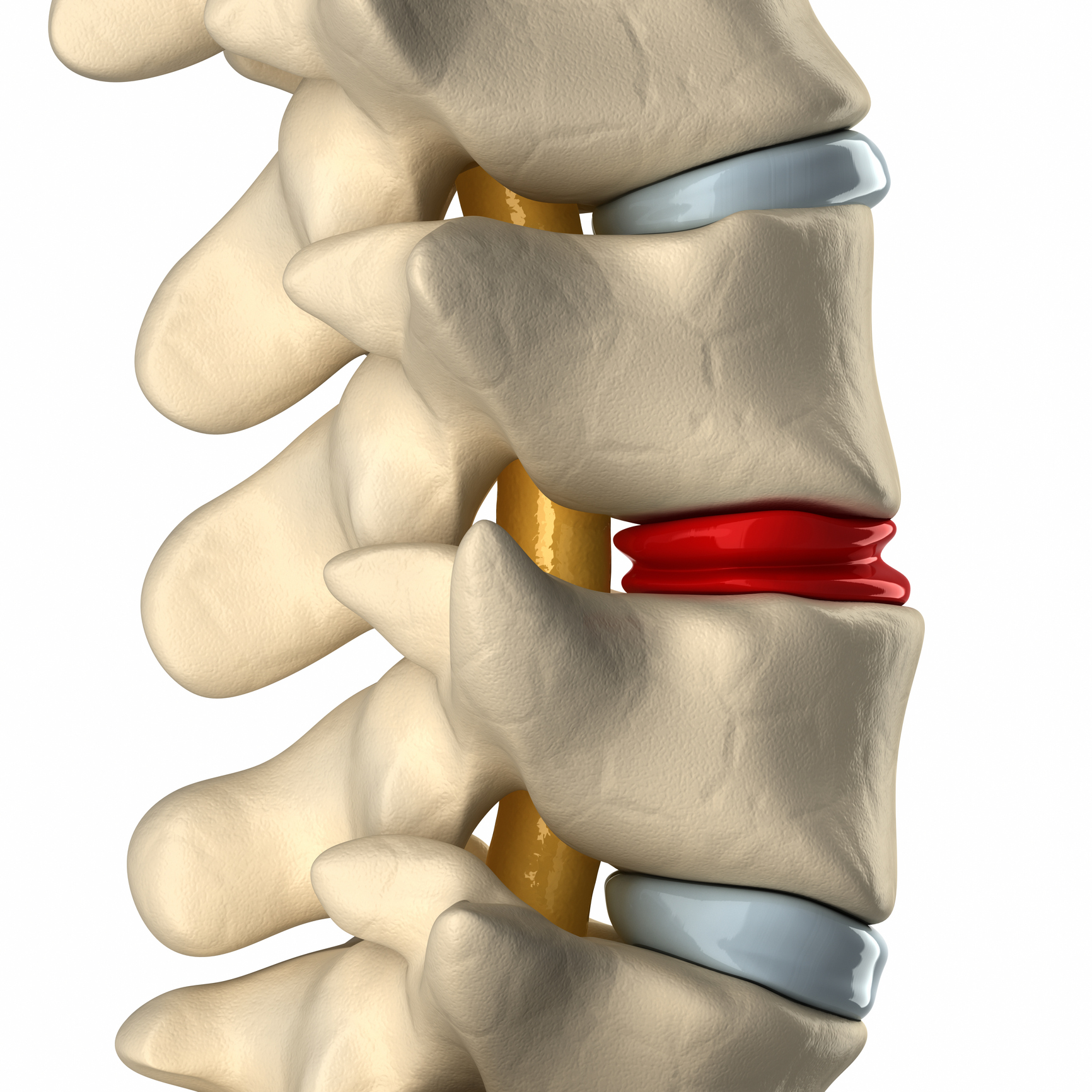
In between each vertebra of your spine, there is a disc which acts as a shock absorber and gives the spine more flexibility.Each disc has a solid outer wall (imagine a car tyre), called the Annulus Fibrosus with an inner thick jelly core called the Nucleus Pulposus.In this picture you can see the discs highlighted white and the ‘injured’ disc as red.The spinal cord of your central nervous system is shown as yellow and off-shoots of that cord leave the spine as nerves to the rest of your body and pass right next to the disc.
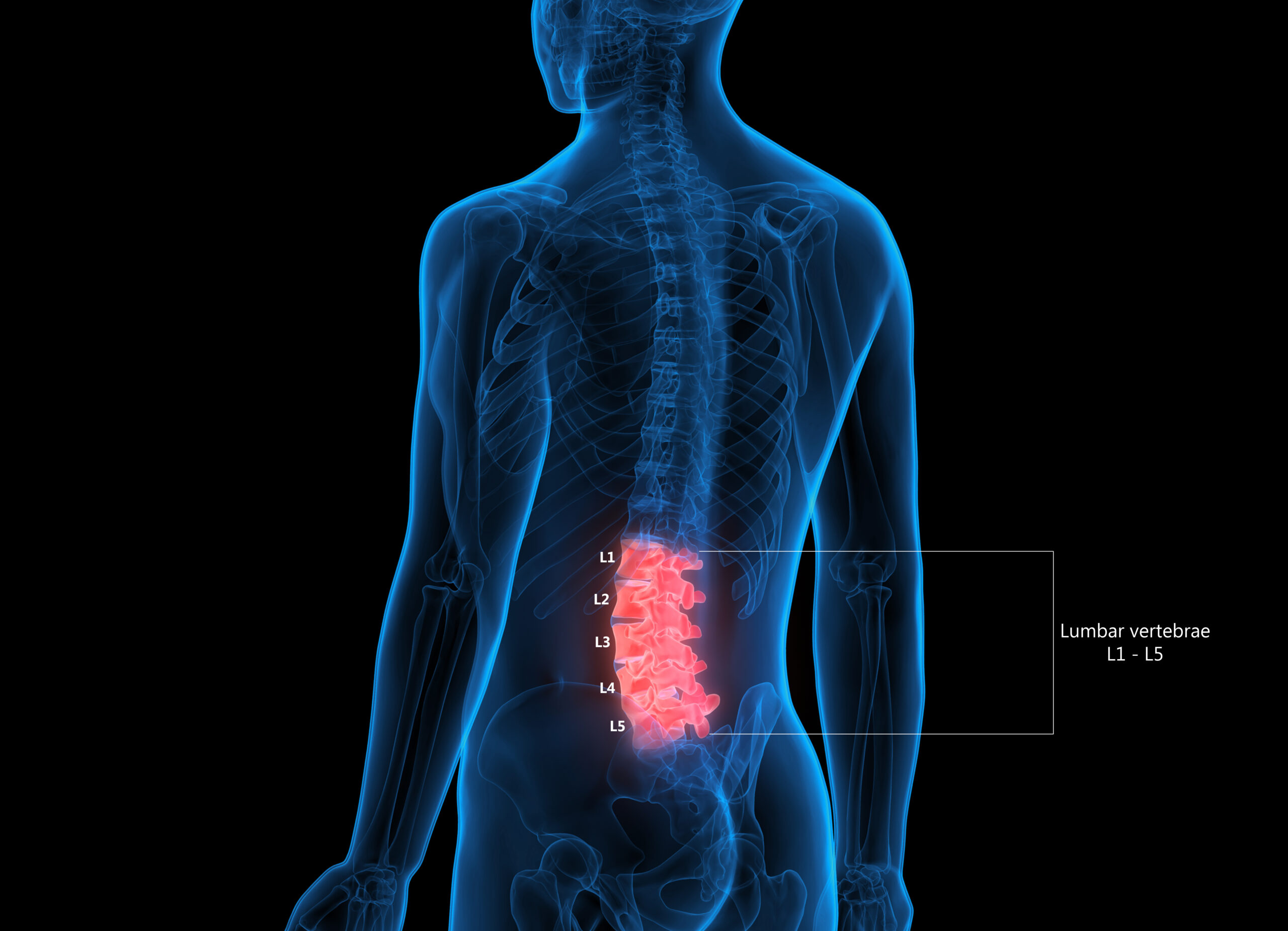
A healthy disc is an oval cushion, made of fibrocartilage, that allows some movement between vertebrae without sacrificing strength. With age the disc begins to desiccate and lose its height. Flattening discs put stress on the outer wall of the Annulus Fibrosus and this can lead to torsions and small tears that might ultimately lead to a full open tear and the inner Nucleus Pulposus oozing out – a prolapsed or “slipped” disc.
However, full disc prolapses/herniations are less common than the Annulus Fibrosus bulge/flattening.
As Osteopaths, we are very keen to diagnose at which stage the disc injury is. This helps us determine treatment and management for a speedier recovery.
Disc pain can be both acute and chronic. The pain varies depending on whether the disc is bulging or fully prolapsed. If the nerves are affected as they exit past the injured disc, you can get referred nerve pain extending into the arm or leg depending on which disc is injured. This can be extremely painful and patients can find it emotionally distressing. Pain relief medication will be needed in this circumstance and your Osteopath will advise accordingly. Should the pain persist, your Osteopath will advise whether a MRI is appropriate and also whether referral to a Pain Specialist is required whilst Osteopathic treatment is ongoing to help manage the problem.
Commonly with disc pain, the nerves are only mildly affected and Osteopathic treatment and management can help you make a good recovery. Your Osteopath will work with you to find ways to manage your work and lifestyle to enable the disc to recover. For example, sitting and compression makes a lumbar spine disc worse so your Osteopath may advise getting a standing desk. Your will also be given some simple exercises to help your progress.
If you have pain, contact us!
If you have neck or back pain don’t wait, just call the clinic and come in and we will be able to diagnose the problem. Disc pain can be extremely persistent unless managed correctly so do seek help. Our Osteopaths are happy to help so please call 02089776396 and we can get you back on The Road to Recovery.

You can email info@osteopathuk.co.uk or call 02089776396
Click the link for our website: www.osteopathuk.co.uk
Please do not hesitate to get in touch with us for any reason, we are here to help and welcome any feedback. Click here for more information.
The practice is super busy at the moment – everyone is coming in for a pre-holiday treatment to get themselves in peak musculoskeletal health prior to jetting off for some relaxation.
This newsletter will help you look after your spine and joints so that you have a wonderful holiday!

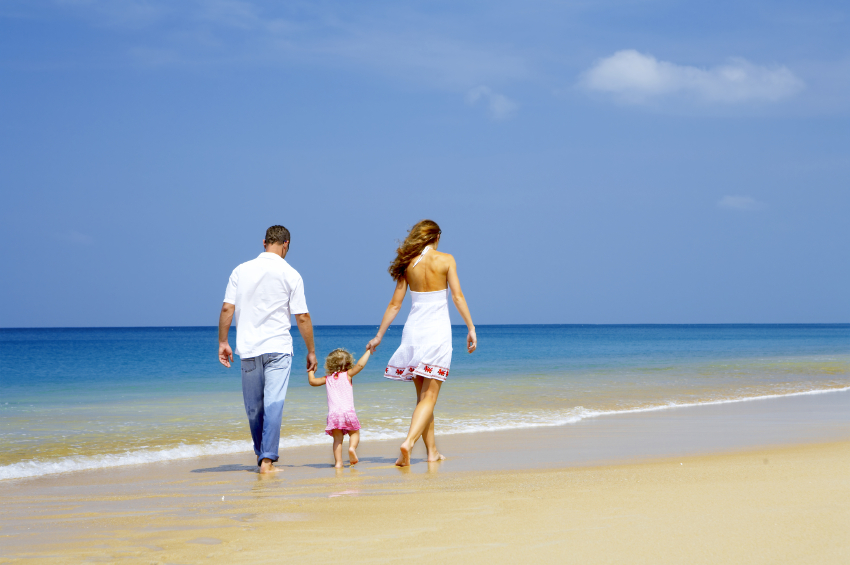

Lifting and then twisting is a common cause of back pain. Engage your abdominal muscles prior to lifting and bend your knees and use your legs to prevent overloading your spine.
We always advise being especially careful of airport luggage conveyor belts! Also, be careful un/loading the car and if you have a bad back we highly recommend delegating the task to someone else 🙂
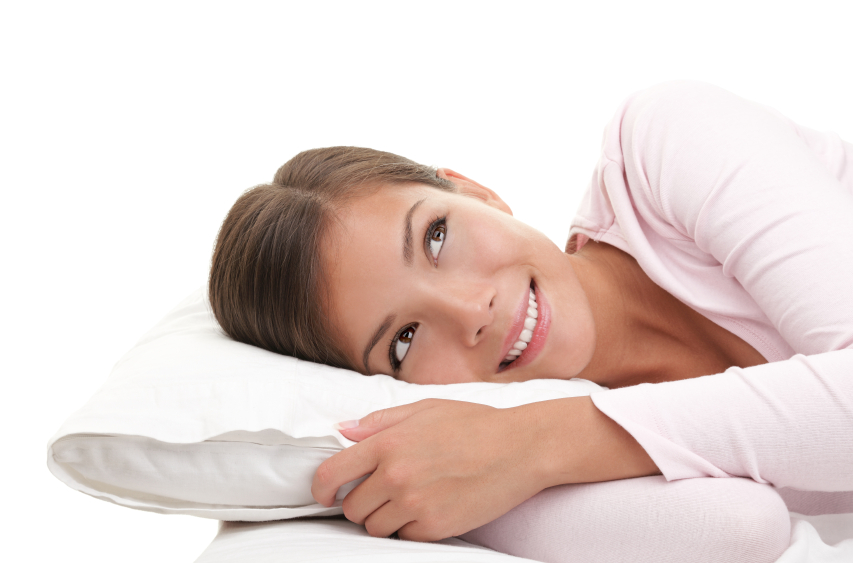
If you have recurring neck problems then it can be a great idea to pack your pillow to take on holiday. Changes in pillows are one of the common causes of neck pain that we see post-holiday in the practice. If it isn’t feasible to take your own pillow, then try folding a towel into a pad underneath your hotel pillow so that it reaches your optimum height for comfort.
The change in mattress on holiday can also lead to hip, shoulder and back problems. Every year we treat patients post-holiday who find the change of bed affects their spine. If the bed is too hard, try sleeping on a folded duvet or ask the hotel is they provide mattress toppers. If the mattress feels too soft then you can get an achey lower back – try doing gentle knees to chest exercises daily to reduce stiffness.
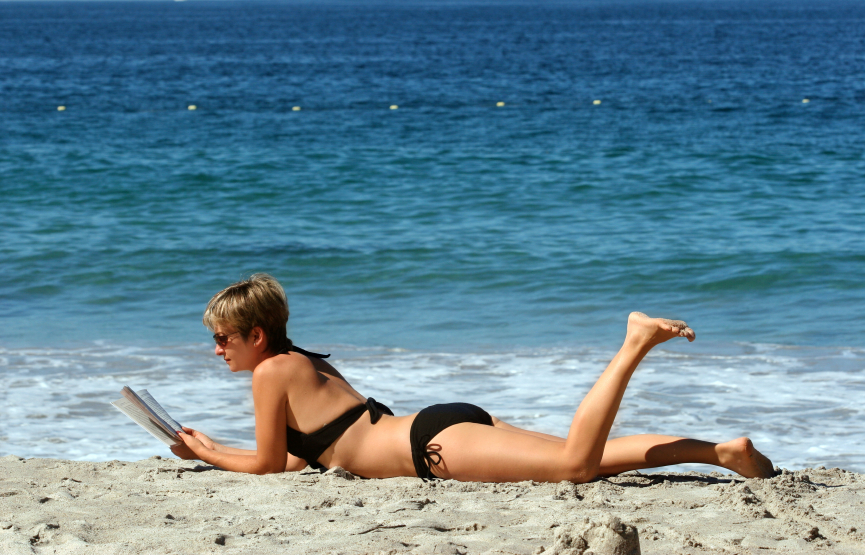
Whilst holidays are wonderfully relaxing, inactivity can itself cause back pain. Sun loungers aren’t ergonomically designed for bad backs so try and get up every 20 minutes and move around. Lying on your tummy without support can put excessive curve through the lumbar spine – try folding a towel/pillow underneath your abdomen to prevent this.
If you would like to book your holiday appointment, please call us on 02089776396 or email info@osteopathuk.co.uk

You can email info@osteopathuk.co.uk or call
Click the link for our website: www.osteopathuk.co.uk
Please do not hesitate to get in touch with us for any reason, we are here to help and welcome any feedback. Click here for more information.
Kind regards,


Top Up your Vitamin D – get outside as much as possible. In the UK, we only absorb Vitamin D from sunlight from April through to the end of September. Vitamin D is a fat soluble vitamin that works with calcium and magnesium to give us healthy bones and teeth and also supports muscle function and our immune system.
Be Active – whether you run, walk or want to play tennis or cricket, the rule of thumb is do more! This is the perfect time of year for evening walks after work, early runs or just taking the family on a great day out in the countryside. Be creative, have fun and raise your activity levels in the summer months.
Eat Well – summer foods can be low fat and extremely healthy given the right food choices. Try and prepare your own food for BBQs rather than buying pre-prepared foods. That way you can create marinades with less salt and sugar in them and choose lower fat options.
Drink Plenty of Water – staying hydrated is obvious but very necessary in the summer. Always carry a bottle of water with you, especially when you are outside. Dehydration can lead to dry mouth, headache, dizziness, constipation and muscle cramps.
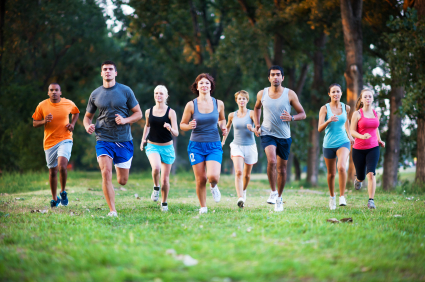
|
|

If you would like more information on how Osteopathy can help, please contact us.
You can email info@osteopathuk.co.uk or call 02089776396
| Click the link for our website: http://www.osteopathuk.co.uk/ |

Please do not hesitate to get in touch with us for any reason, we are here to help and welcome any feedback. Click here for more information.